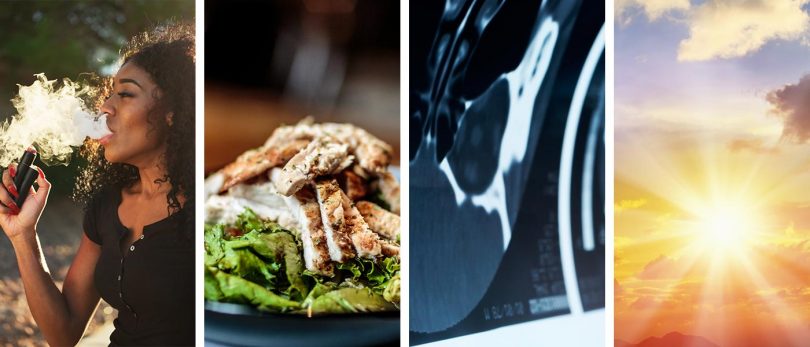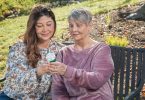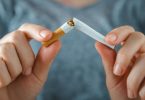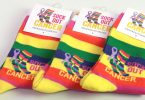Cancer has many causes, from lifestyle choices to inherited genes. However, most cancers are not clearly linked to a genetic cause, according to the American Cancer Society (ACS). This means that the majority of cancers can be attributed, to some degree, to our lifestyle choices and behaviors. Although you can never completely eliminate the threat of cancer, there are many ways to reduce your risk. Here are a few suggestions to implement in your daily life to stay healthy and prevent cancer.
Don’t smoke
Smoking is the No. 1 preventable cause of death in the U.S. It causes about 20% of cancers and is responsible for about 30% of cancer deaths. While it is most often associated with lung cancer, smoking can also cause many other types of cancer, including mouth, esophagus, kidney, and colon cancer, among others. Quitting smoking reduces your risk of many diseases and can add as much as 10 years to your life. Even heavy smokers will benefit from quitting, no matter their age.
Eat healthy
Eating a diet full of whole foods and high in fruits, vegetables, and other plant-based foods has many health benefits, including reducing your risk of cancer. The Mediterranean diet—based on fruits, veggies, whole grains, legumes, and nuts—has even been shown to reduce breast cancer risk in women.
Protect yourself from the sun (even in winter)
According to the ACS, most skin cancers can be linked to exposure to ultraviolet (UV) radiation. UV radiation is most commonly found in sunlight, but it also can come from other sources such as sunlamps or tanning beds. While UV rays are stronger during the spring and summer, they can also bounce off of snow (or other surfaces like water, sand, pavement, or grass) during the winter, increasing your exposure. Wearing sunscreen and avoiding the sun during its peak hours of 10 a.m. to 4 p.m. can protect you.
Get screened
It’s impossible to fully prevent cancer. However, if you receive regular medical care and talk to your doctor about appropriate screenings, you can catch cancer early, greatly increasing your likelihood of successful treatment. There are screening tools for many types of cancer, including colorectal, lung, and breast cancer. Start a conversation with your doctor about screenings to determine what is best for you. For cancer screening recommendations, check out “Cancer Doesn’t Wait.”
CHECK IT OUT
Learn more about cancer screenings at nyuhs.org.







